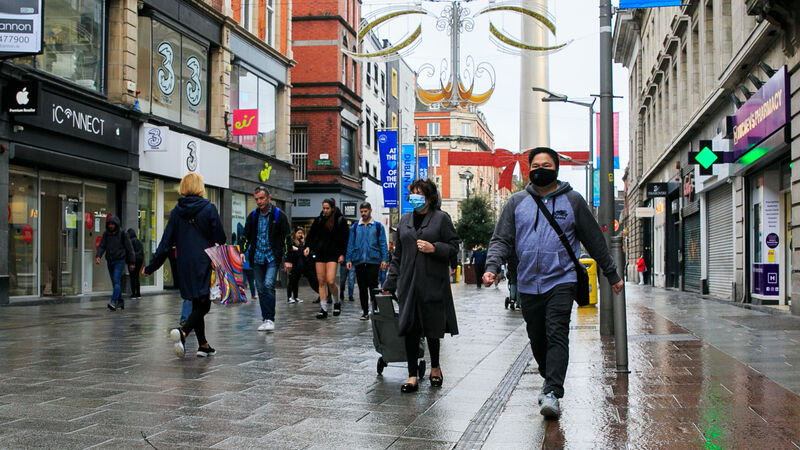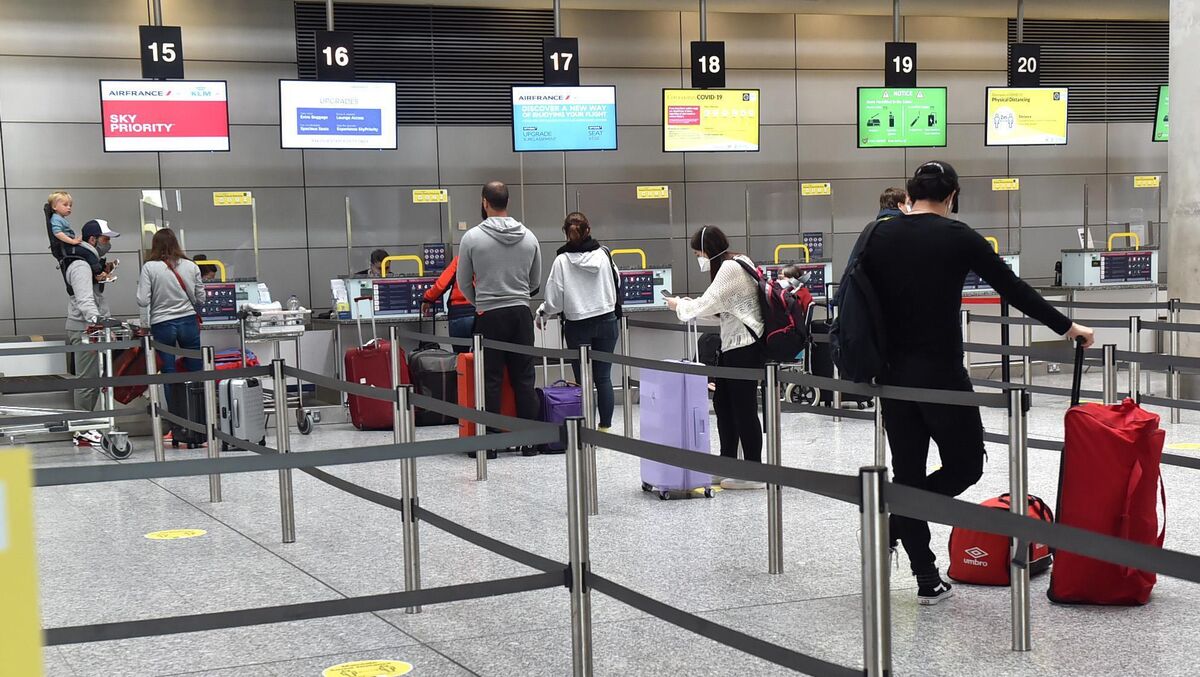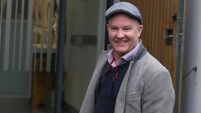Covid-19: Expert suggests delaying Christmas until late January to help crush virus

People wearing face masks on Henry Street
An expert in biochemistry has suggested that Ireland should delay Christmas celebrations until the end of January in order to crush the Covid-19 virus.
Dr Tómas Ryan, Associate Professor in the School of Biochemistry and Immunology at Trinity College, has warned that the country could find itself back at 1,000 cases a day by January if Level 5 restrictions were lifted as planned on December 1.
The Government needed to warn people that this Christmas was “not going to be anything like the Christmases we normally have anyway," he said.
“Even if we get down to 100 cases a day on December 1st, it seems to me it would be much more profitable and pleasant for everyone in Ireland if we got cases down to single figures or to zero and then kept them there so that we could open up and stay open for as long as possible.”
Ireland could be in the same situation as Australia, which he described as “wonderful” if the current lockdown was maintained for longer.
“I think we can return to a normality that is quite like life right now in most of Australia by early January, which would mean Level One or Level Zero restrictions by January, if we get rid of this now.
“One way of doing this would be to delay Christmas until the end of January and have a real Christmas and a real party then," he told Newstalk radio.
Infectious diseases expert Professor Paddy Mallon has also warned that the Irish public needs to “sit back and think about what they want from Christmas” as they are not going to have “a normal Christmas”.
Prof Mallon said that if people started to “go out” and have close contacts that would lead to a repeat of the situation the country was in at the end of October.
People should plan what they want from Christmas and then fit those plans around public health regulations, he suggested.
“The one thing that we could do as a society is not to return to unregulated home gatherings. That’s where a lot of cases were coming from," he said.
There was a need “to dig down into cases as they develop” to see if they were arising outside the home.
The hospitality industry had been very responsible in their approach and it would be necessary “to see what works and what doesn’t work,” said Prof Mallon.
“We need evidence to have a more nuanced approach.”
Meanwhile, a new European traffic light system is not "a mechanism to open the doors" and not about Christmas, a government junior minister has warned.
Minister for European Affairs Thomas Byrne said that new rules, which came into effect this week, are about having EU-wide certainty for those who have to travel, rather than those who want to come home for Christmas.
Under the current rules, those who come from regions listed as red or orange must restrict their movements for 14 days. However, those who come from an orange region can cut this to five days if they receive a negative Covid test.

From November 29, that will also apply for red countries.
This will, in theory, make it possible for people to come home for Christmas.
"We're not encouraging travel at the moment. We're not encouraging people to come into the country unless they have to. So the situation hasn't changed," Mr Byrne said on RTE radio.
"We now have an EU system that can give certainty when people have to travel. This isn't simply a mechanism to open the doors. It is a mechanism for travel where it is possible.
"The rules will still be there, but if people get a negative PCR test after five days, they can discontinue restricting their movements."
"This is not about Christmas. It is simply the conclusion of work that has gone on at European level."





